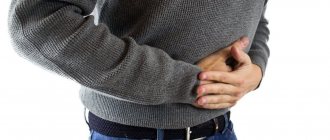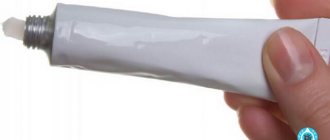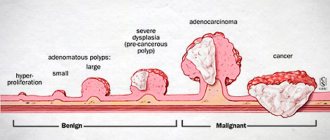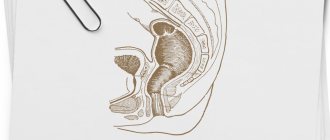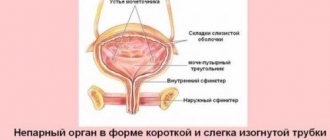Itching in the anal area is a pathological condition that occurs with a wide range of intestinal diseases. A person experiences constant discomfort that interferes with normal life activities.
In some cases, itching intensifies at night, interfering with sleep and rest. As a result, performance decreases, the patient becomes lethargic, irritable, depressed and apathetic.
In addition to itching and burning, the patient may experience other symptoms:
- redness of the skin;
- a change in the density of the skin near the anus - its thinning or, conversely, thickening;
- the appearance of rashes, weeping ulcers, eczema.
What is itching in the anus?
Itching is a painful, tickling sensation in the skin that causes an obsessive desire to scratch the affected area. Itching often occurs due to irritation of the skin near the anus. For example, with idiopathic itching, there is increased production of mucus by the intestinal walls. Fluid is constantly released from the anus, causing inflammation and redness of the surrounding tissues. This is what causes discomfort. But other reasons also lead to inflammation.
For example, with enterobiasis, painful itching occurs due to the movement of small parasitic worms - pinworms. The burning sensation intensifies in the dark, when the helminths move closer to the anus. This irritates the nerve endings, which causes an itchy burning sensation. But these are not all the factors due to which this pathological condition can develop.
Reason 3. Fungal infection
It is imperative to ensure that the sore spot is dry. It is worth understanding that excessive humidity provokes irritation and also creates unique opportunities for the spread of fungal infection.
How does the treatment work?
To relieve irritation around the anus, you need to use starch powder, which will help keep the area dry. Before use, you need to pour it into your palm and then sprinkle it onto the desired area from your hand. Glycine is useful in cases where the child has increased excitability and sleep disturbances.
The child should change his underwear several times daily. If persistent and severe itching is observed, it is recommended to change panties quite often. It is also important to prevent your baby from going to bed in dirty panties. Oatmeal, which is added to the bath, will help alleviate the child’s condition. This will not only reduce the symptoms of itching, but also help soften the baby's skin.
What causes itching in the anus?
Anal itching is not always caused by pathological processes occurring in the body.
It may also be associated with external influences:
- using hard toilet paper that injures the skin;
- excessive or insufficient intimate hygiene;
- working in a room with dusty air.
Unsuitable soap or allergies to cosmetic fragrances also lead to skin irritation and can cause burning and itching.
Irritation of the anal area is caused by a variety of diseases:
- parasitic infestations;
- inflammation of hemorrhoids;
- fungal infections;
- genitourinary infections;
- neoplasms;
- insufficient function of the anal sphincter;
- diabetes mellitus and other severe chronic diseases.
In many cases, an unpleasant symptom occurs due to diseases of the rectum. Their spectrum is quite wide: skin neoplasms, chronic proctosigmoiditis, and dysbacteriosis can cause a burning sensation. Other symptoms gradually appear: for example, pain and pain during bowel movements, bloody and mucous clots in the stool, a feeling of pressure and heaviness in the lower abdomen. But the main symptom remains irritation and redness of the skin.
In women, itching may be associated with certain gynecological diseases. At the same time, it radiates not only to the anal area, but also spreads to the labia majora, labia minora, and vulva. The perineum becomes red and swollen, and copious discharge with an unpleasant odor appears.
The causes of burning are varied, so if it occurs, it is recommended to contact a medical center for examination by a proctologist.
Preventive measures
A few simple tips:
- After defecation, you should wash yourself or use wet wipes; rough paper or paper with strong fragrances can cause irritation or allergies,
- It is very important to maintain hygiene: the anal area, which is constantly warm and in contact with feces, must be clean, otherwise microbes and fungi will begin to multiply intensively,
- Healthy stool and sufficient physical activity will help you avoid hemorrhoids.
- Washing your hands and food before eating and limiting contact with unfamiliar animals will help reduce the possibility of infection with worms to zero.
Following these simple rules will reduce the likelihood of diseases manifested by anal itching. If it nevertheless begins to interfere with your life, you should consult a doctor without hesitation and without wasting time, which in some situations may turn out to be precious.
Itching around the anus
Skin lesions near the anus are associated with exposure to external and internal factors. The first includes:
- increased sweating. More often observed in people with excess body weight. Sweat begins to accumulate in the perineal area, irritating the skin. As a result, diaper rash appears, which serves as a source of discomfort;
- wearing tight synthetic underwear. Linen fabric disrupts natural air exchange and prevents normal moisture removal. Rough internal seams violate the integrity of the skin and impair blood microcirculation. All this creates favorable conditions for the development of pathogens.
If the irritation is caused by external causes, curing it is quite simple. The patient is advised to give up synthetic detergents (or choose hypoallergenic cosmetics tested by dermatologists) and choose natural, loose underwear with a comfortable cut.
Conditions associated with internal pathologies are more difficult to treat. For example, itching is the main symptom of dermatitis and psoriasis, lichen, and eczema. Dysbacteriosis and diarrhea can cause a burning sensation. Too frequent bowel movements have a negative impact on the condition of the mucous membrane: blood rushes to it, the tissues swell, become more sensitive - any touch is accompanied by pain. But there are also more serious reasons that disrupt the functioning of the sphincter.
For example, chronic metabolic disorders lead to the accumulation of toxins in tissue cells. As a result, the patient develops skin rashes that extend to the perineum. Therefore, itching accompanies diabetes mellitus, cirrhosis and liver tumors, and pancreatic pathologies.
Reason 5. Anal fissures
Often, a child with a tendency to constipation develops microcracks in the anus, leading to itching. The first thing you should pay close attention to is the use of a special diet that would help soften the stool.
It is necessary to add vegetables, all kinds of fruits, as well as fermented milk products to the diet.
Do enemas, and also take Vaseline oil orally three times a day, a dessert spoon. It is necessary to ensure that there is daily stool with a soft consistency of stool. The treatment regimen for such a situation will be approximately as follows:
- Every day for a week, the child needs to have a cleansing enema with plain water at room temperature;
- The defecation process should be completed by using a sitz bath with a weak solution of potassium permanganate for 15 minutes;
- Afterwards, dry the perineum and then insert special suppositories into the anus according to the doctor’s instructions.
Among the traditional methods of treatment, baths with extracts of chamomile and string, birch buds and oak bark and other children's preparations for diarrhea are often used. All ingredients must be taken in the same proportion, brewed with a glass of boiling water, then diluted with boiled water at a comfortable temperature. Use for sitz baths for a third of an hour per procedure. It is recommended to perform it daily, several times
Which doctor treats itching in the anus?
If the anal area becomes red and itchy, you should make an appointment with a proctologist. The specialist will listen to complaints, clarify family history, and conduct an initial examination. But to make an accurate diagnosis, examinations will be required, the range of which will be determined by the doctor.
Typically studies include:
- blood and urine tests;
- irrigoscopy;
- colonoscopy;
- sigmoidoscopy;
- anoscopy and other intestinal examinations.
In some cases, consultations with other doctors are required: a urologist or gynecologist, endocrinologist, dermatovenerologist. Referrals to them are given by a proctologist. Based on the results of the tests, the disease causing irritation in the anal area is determined, and the appropriate treatment is selected.
Diagnostics
Diagnostics with a practicologist will help make the correct diagnosis.
Despite the fact that the symptoms manifest themselves quite clearly, talking about what problem caused it and what needs to be done next can only be done after consulting a specialist, namely a proctologist, who will conduct a series of studies and prescribe tests, based on the results of which he will diagnose accurate and correct diagnosis.
First of all, the doctor will ask the patient about what caused the itching, how much discomfort it causes, and how long it has been bothering him. In addition, he will ask you to roughly describe your diet, based on which he will be able to understand whether the itching is a simple allergic reaction.
Why does the anus hurt?
In some patients, the itching turns into aching or cutting pain in the anal area. The attacks differ in duration and intensity, radiating to the lower abdomen, lower back, and lower spine. The severity of the pain syndrome and its specificity are determined by the pathological disorder that led to the appearance of pain.
Doctors can diagnose:
- anal fissure. It is usually diagnosed after mechanical trauma to the sphincter and surrounding tissues - for example, during difficult childbirth or after an accident. The mucous membrane “cracks” and exposes the muscles, which leads to severe pain. Painful spasms occur when visiting the toilet, performing hygiene procedures, or touching the affected area;
- anorectal fistula. A fistula is a pathological channel between the intestines and the skin of the buttocks. The fistula itself is usually painless, but mucus and other waste products are constantly released from it, which leads to constant irritation of the surrounding tissues. The skin becomes inflamed, swollen, red and itchy;
- haemorrhoids. A common cause of pain and heaviness in the anal area. With hemorrhoids, the hemorrhoidal nodes located next to the sphincter become inflamed. If the nodes are slightly enlarged (the disease is at the initial stage), then the patient experiences discomfort only when bowel movements. But as the pathology progresses, acute pain appears with any touch to the tailbone area - it becomes impossible to sit. Other symptoms of hemorrhoids include: bleeding from the anus, the appearance of cracks in the mucous membrane;
- chronic proctosigmoiditis. This is the name for inflammation of the lower intestine, which occurs with clearly defined periods of remission. During periods of exacerbation, the patient's temperature rises, a sensation of a foreign body in the anus and severe itching pain;
- intestinal tumors. The appearance of neoplasms in the gastrointestinal tract is also accompanied by pain and burning. The closer the tumor is to the anus, the more pronounced discomfort the person will experience.
Constipation (due to hardening of stool, creating pressure on the intestinal walls) or diarrhea can lead to pain in the anus. Often severe pain occurs due to impaired blood flow in the gluteal muscles, for example, from a prolonged forced sitting position. Truckers or people, freight forwarders encounter this manifestation. The exact cause can only be determined after an examination.
If treatment is not started, the disease worsens and other signs of pathologies gradually develop:
- fever;
- discharge from the anus;
- mucus in stool;
- dysfunction of the gastrointestinal tract;
- pain in the abdominal area.
The patient loses his appetite, experiences nausea after eating, and his weight changes dramatically. The skin becomes pale, moist, with a grayish tint. If such signs appear, it is recommended to make an appointment with a doctor as soon as possible. Pain and burning in the anus may indicate a serious pathology that requires immediate treatment.
Reason 4. Allergic reaction
Children have very delicate skin that can react to various irritants. One of these may be washing powder. For example, when only washed laundry comes into contact with the skin, an allergic reaction occurs, which is characterized by itching. If a child constantly scratches the anus, an inflammatory process may occur with the addition of an infection.
How is the treatment carried out?
The main thing is to eliminate the main allergen; if every time a child wears underwear, itching occurs, then you should observe how the child feels without underwear. If an allergic reaction is confirmed, the child may be prescribed antihistamines: Loratadine, Suprastin, Cetirizine.
To completely eliminate itching, you will need to use local medications (anesthetics).
Sharp pain in the lower abdomen, radiating to the anus
Quite often, women encounter this type of pain in the middle of the menstrual cycle. The pain occurs due to the rupture of the follicle when the egg is released. The process is accompanied by a local increase in temperature in the ovaries, which further aggravates the discomfort. But these are natural processes that do not cause concern.
Similar pain occurs during menstruation. It can be very pronounced and quite long (up to two days). You should not take painkillers or hormonal medications on your own - it is better to contact a supervising gynecologist to prescribe antispasmodics.
But pain in the lower abdomen may also indicate pathologies:
- inflammation and accumulation of fluid in the retrouterine area;
- adhesions affecting the reproductive organs;
- ovarian cyst;
- ectopic pregnancy.
If sharp pain occurs in men, it may be caused by inflammation of the appendix. Along with the pain, nausea, general weakness, and heart rhythm disturbances occur. But sometimes painful sensations in the abdomen are caused by ordinary constipation and flatulence. However, if a person regularly experiences indigestion or suffers from regular constipation, this may be a sign of a serious pathology. It is worth making an appointment with a gastroenterologist or proctologist.
Reason 6. Stressful situations
The child may hide some experiences from his parents, but the consequences are revealed in the form of itching near the anus. Reasons for stress may include:
- First day in kindergarten and getting used to the team.
- Performing in front of an audience.
- Various phobias.
- Problems at school.
Video: Neurotic itching in a child
To eliminate this problem, it is enough to talk confidentially with the child and, if the situation does not improve (the itching does not go away), then you need to contact a psychologist.
Why does pain radiate to the anus during pregnancy?
Pregnant women periodically experience unpleasant pain radiating to the anal sphincter area. Discomfort is caused by a number of factors:
- Fetal growth leads to increased pressure on the intestines. Internal organs become compressed, blood flow to them deteriorates and metabolic processes slow down. To compensate for this effect, the veins swell and expand, which gradually worsens the elasticity of the intestinal walls and leads to the formation of hemorrhagic nodes;
- in the last trimester, the organs of the peritoneum are compressed and displaced, experiencing a lack of nutrients. This affects their functioning - in particular, pregnant women may suffer from constipation or diarrhea, which is also accompanied by painful sensations in the anus;
- During pregnancy, the body's immune defense decreases and inflammatory processes worsen, pathogenic microflora activates, and dysbacteriosis often develops.
Fetal growth also affects intestinal motor functions. Peristalsis worsens, which leads to frequent constipation. The situation is aggravated due to the woman’s low mobility in the last stages of pregnancy. To avoid problems with the gastrointestinal tract, it is recommended to balance your diet, and if unpleasant symptoms recur, consult an experienced doctor.
When pain occurs at 8-9 months of pregnancy, it may indicate the onset of labor or “false contractions.” Therefore, the appearance of the slightest discomfort cannot be ignored - this can negatively affect the health of the mother and her unborn child.
Complications due to the activity of worms
Warning symptoms should not be underestimated. Unfortunately, an untreated problem can cause many complications, the most common of which are:
- problems with concentration, which leads to problems with learning and remembering;
- sleep disorders;
- inflammation of the female genital organs;
- colitis;
- appendicitis;
- dermatitis (caused by constant scratching around the anus);
- weight loss.
How to get rid of itching in the anus?
If itching and burning appears in the anal area, you need to make sure that it is not caused by external factors. Perhaps you recently changed your intimate hygiene product and the itching is caused by an allergic reaction.
In this case it is necessary:
- remove cosmetic residues from the skin;
- wear loose, comfortable-shaped underwear made of cotton, silk or other natural materials;
- choose soft, fragrance-free toilet paper.
By eliminating the external irritant, you will get rid of the itching. But if, in addition to irritation, you find symptoms such as:
- rashes on the buttocks;
- the appearance of condylomas;
- weeping sores.
In this case, it is recommended to seek advice from a proctologist or dermatovenerologist as soon as possible. Most likely, the patient has a skin infection caused by a bacteria, virus, or fungus. The doctor will prescribe the necessary tests to detect the pathogen and select the appropriate treatment.
If independent attempts to cope with the itching do not bring results for more than a day, the burning and stinging intensifies, or new symptoms of disorders appear, you should not self-medicate. Many diseases can cause discomfort in the anal area, and the sooner they are detected, the higher the likelihood of a quick recovery without complications.
Reviews
I suffered from anal itching for 9 years. I went to the surgeon for a referral to a proctologist. The surgeon gave directions for tests. Everything is okay. The proctologist (in my case) said that itching of the anus could be an allergic reaction to foods (sweets, citrus fruits, coffee, alcohol, etc.).
Prescribed Triderm or Celestoderm ointment. I decided to save money, bought Akriderm, started smearing it, the itching went away after 4 days, but be sure to smear it at night for 1 month. Hurray-Hurray-Hurray!!!!!!!!! Maybe it will help you, it’s inexpensive - 130 rubles. At certain times, a proctologist can see you for a fee without a referral. Find out.
How to treat itching in the anus?
The treatment regimen depends on the diagnosed disease. If the itching is caused by parasitic infestation, anthelmintic drugs are prescribed. In case of contact dermatitis, the doctor prescribes antihistamine tablets and topical ointments.
Typically, complex treatment is carried out, which may include:
- physiotherapy. They improve blood circulation in tissues, promote rapid healing and normalization of the rectum. Reduce the severity of pain and help alleviate the patient’s condition;
- taking antiviral and antimicrobial drugs. Prescribed if pain and itching are caused by pathogenic microorganisms. Targets the pathogen;
- painkillers. For intense pain, novocaine blockades are prescribed.
Medicines and procedures are selected depending on the diagnosed disease, the patient’s current state of health, and the characteristics of his body. The proctologist monitors the progress of treatment until the patient recovers completely.
What to do if you have severe pain in the anus?
When faced with severe pain near the anus, it is recommended to contact a medical center for qualified help. You should not self-medicate - taking painkillers only masks the symptom, while the disease will progress. There is also no need to rely on folk remedies. They are not effective and, in some pathologies, can only aggravate the patient’s condition.
To make an accurate diagnosis, it is necessary to undergo a series of laboratory and instrumental examinations. Based on their results, the doctor will determine the cause of severe pain and select effective therapy.
Simple prevention will help reduce the risk of proctological disorders:
- do not allow blood to stagnate in the gluteal muscles - when working sedentarily, try to get up regularly and do a little warm-up;
- balance your diet - add enough vegetables and fruits with plenty of fiber. Plant fibers stimulate intestinal motor function and help maintain muscle tone;
- do not abuse alcohol, spicy, salty and smoked foods. These products irritate the mucous membrane and provoke inflammation;
- balance your work and rest schedule - increased psycho-emotional stress can also cause intestinal problems.
Persons at high risk (overweight, difficult childbirth, family history of inflammation and tumors of the gastrointestinal tract) are recommended to undergo regular preventive examinations in the proctology department.
3
0
0
Article rating:
3.75 out of 5 based on 4 ratings
Author: Kutepova Ekaterina Vladimirovna
Surgeon-proctologist. Candidate of Medical Sciences. Highest category. Work experience 15 years.

